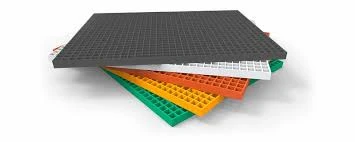
-
 Afrikaans
Afrikaans -
 Albanian
Albanian -
 Amharic
Amharic -
 Arabic
Arabic -
 Armenian
Armenian -
 Azerbaijani
Azerbaijani -
 Basque
Basque -
 Belarusian
Belarusian -
 Bengali
Bengali -
 Bosnian
Bosnian -
 Bulgarian
Bulgarian -
 Catalan
Catalan -
 Cebuano
Cebuano -
 China
China -
 China (Taiwan)
China (Taiwan) -
 Corsican
Corsican -
 Croatian
Croatian -
 Czech
Czech -
 Danish
Danish -
 Dutch
Dutch -
 English
English -
 Esperanto
Esperanto -
 Estonian
Estonian -
 Finnish
Finnish -
 French
French -
 Frisian
Frisian -
 Galician
Galician -
 Georgian
Georgian -
 German
German -
 Greek
Greek -
 Gujarati
Gujarati -
 Haitian Creole
Haitian Creole -
 hausa
hausa -
 hawaiian
hawaiian -
 Hebrew
Hebrew -
 Hindi
Hindi -
 Miao
Miao -
 Hungarian
Hungarian -
 Icelandic
Icelandic -
 igbo
igbo -
 Indonesian
Indonesian -
 irish
irish -
 Italian
Italian -
 Japanese
Japanese -
 Javanese
Javanese -
 Kannada
Kannada -
 kazakh
kazakh -
 Khmer
Khmer -
 Rwandese
Rwandese -
 Korean
Korean -
 Kurdish
Kurdish -
 Kyrgyz
Kyrgyz -
 Lao
Lao -
 Latin
Latin -
 Latvian
Latvian -
 Lithuanian
Lithuanian -
 Luxembourgish
Luxembourgish -
 Macedonian
Macedonian -
 Malgashi
Malgashi -
 Malay
Malay -
 Malayalam
Malayalam -
 Maltese
Maltese -
 Maori
Maori -
 Marathi
Marathi -
 Mongolian
Mongolian -
 Myanmar
Myanmar -
 Nepali
Nepali -
 Norwegian
Norwegian -
 Norwegian
Norwegian -
 Occitan
Occitan -
 Pashto
Pashto -
 Persian
Persian -
 Polish
Polish -
 Portuguese
Portuguese -
 Punjabi
Punjabi -
 Romanian
Romanian -
 Russian
Russian -
 Samoan
Samoan -
 Scottish Gaelic
Scottish Gaelic -
 Serbian
Serbian -
 Sesotho
Sesotho -
 Shona
Shona -
 Sindhi
Sindhi -
 Sinhala
Sinhala -
 Slovak
Slovak -
 Slovenian
Slovenian -
 Somali
Somali -
 Spanish
Spanish -
 Sundanese
Sundanese -
 Swahili
Swahili -
 Swedish
Swedish -
 Tagalog
Tagalog -
 Tajik
Tajik -
 Tamil
Tamil -
 Tatar
Tatar -
 Telugu
Telugu -
 Thai
Thai -
 Turkish
Turkish -
 Turkmen
Turkmen -
 Ukrainian
Ukrainian -
 Urdu
Urdu -
 Uighur
Uighur -
 Uzbek
Uzbek -
 Vietnamese
Vietnamese -
 Welsh
Welsh -
 Bantu
Bantu -
 Yiddish
Yiddish -
 Yoruba
Yoruba -
 Zulu
Zulu
glass fiber tank
The Advantages and Applications of Glass Fiber Tanks
In recent years, glass fiber tanks have emerged as a significant innovation in various industrial applications, including water storage, chemical processing, and agricultural systems. These tanks are constructed from fiberglass reinforced plastic (FRP), which is composed of a resin matrix reinforced with glass fibers. This combination creates a material that is not only lightweight but also offers superior strength and durability compared to traditional materials such as steel or concrete.
Lightweight and Durable
One of the foremost advantages of glass fiber tanks is their lightweight nature. This feature significantly eases transportation and installation processes, particularly in remote or difficult-to-access locations. Unlike steel tanks, which can be cumbersome and require heavy machinery for installation, glass fiber tanks can often be handled manually or with minimal equipment. This characteristic not only reduces installation costs but also minimizes the environmental impact associated with transport and logistics.
Moreover, glass fiber tanks are exceptionally durable. They are resistant to corrosion, which is a common problem for metal tanks due to the impact of harsh chemicals or environmental factors. This resistance extends the lifespan of the tank, often surpassing 30 years with proper maintenance. The inert nature of fiberglass means that it does not corrode even in aggressive environments, making it ideal for chemical storage applications where contaminants could otherwise compromise the integrity of the storage unit.
Customizable Design
Another significant benefit of glass fiber tanks is their customizable design. Manufacturers can mold fiberglass into various shapes and sizes, allowing for tailored solutions that meet specific user requirements. Whether for storing water for irrigation, chemicals for manufacturing, or waste products for treatment, glass fiber tanks can be adapted to fit spatial constraints or capacity needs. This flexibility is particularly valuable for industries that are frequently changing or growing, as upgrades can be made without a complete overhaul of existing systems.
Thermal Insulation Properties
glass fiber tank

In addition to their structural advantages, glass fiber tanks also provide excellent thermal insulation properties. This characteristic is vital in applications where temperature control is critical, such as when storing temperature-sensitive chemicals or biohazardous materials. The insulating properties help maintain the desired temperature within the tank, preventing overheating or freezing, which can compromise the safety and efficacy of the stored contents.
Environmental Considerations
With growing environmental concerns, the use of glass fiber tanks presents an eco-friendly solution. Their longevity reduces the frequency of replacements, and the materials can often be recycled at the end of their service life. Furthermore, by minimizing the risk of leaks and contamination due to their superior corrosion resistance, glass fiber tanks contribute to preventing environmental hazards associated with the storage of chemicals and waste.
Applications Across Industries
The applications of glass fiber tanks span multiple sectors. In the agricultural sector, they are often used for irrigation systems and fish farming, providing a safe and durable storage option. In the industrial realm, these tanks are ideal for storing hazardous chemicals, wastewater treatment, and even for utility services like potable water storage. Their versatility also extends to the food and beverage industry, where hygienic storage solutions are paramount.
Conclusion
In conclusion, glass fiber tanks represent a sophisticated option for a variety of storage needs across different industries. Their lightweight nature, durability, customization options, thermal insulation properties, and environmental friendliness make them a preferred choice over traditional materials. As industries continue to evolve and face new challenges, glass fiber tanks will likely play an increasingly critical role in ensuring efficient and safe storage solutions. As technology advances, we can expect further innovations in the design and functionality of glass fiber tanks, solidifying their place in the future of storage solutions.









